HU M SAB EK
“Poverty is powerlessness. Poverty cannot be removed unless the poor have power to make decisions that - Ela Bhatt

“Poverty is powerlessness. Poverty cannot be removed unless the poor have power to make decisions that - Ela Bhatt
This proj e ct is in spi red by the actions of poor working women in Indi a, who have survived societal and state indi erence through half a century of relentless oragnizing. Hum Sab EK (We Are One) is the rallying cry of the 3 million strong Self Employed Women’s Association, situated at the confluence of the labor movement, the cooperative movement, and the women’s moverment.
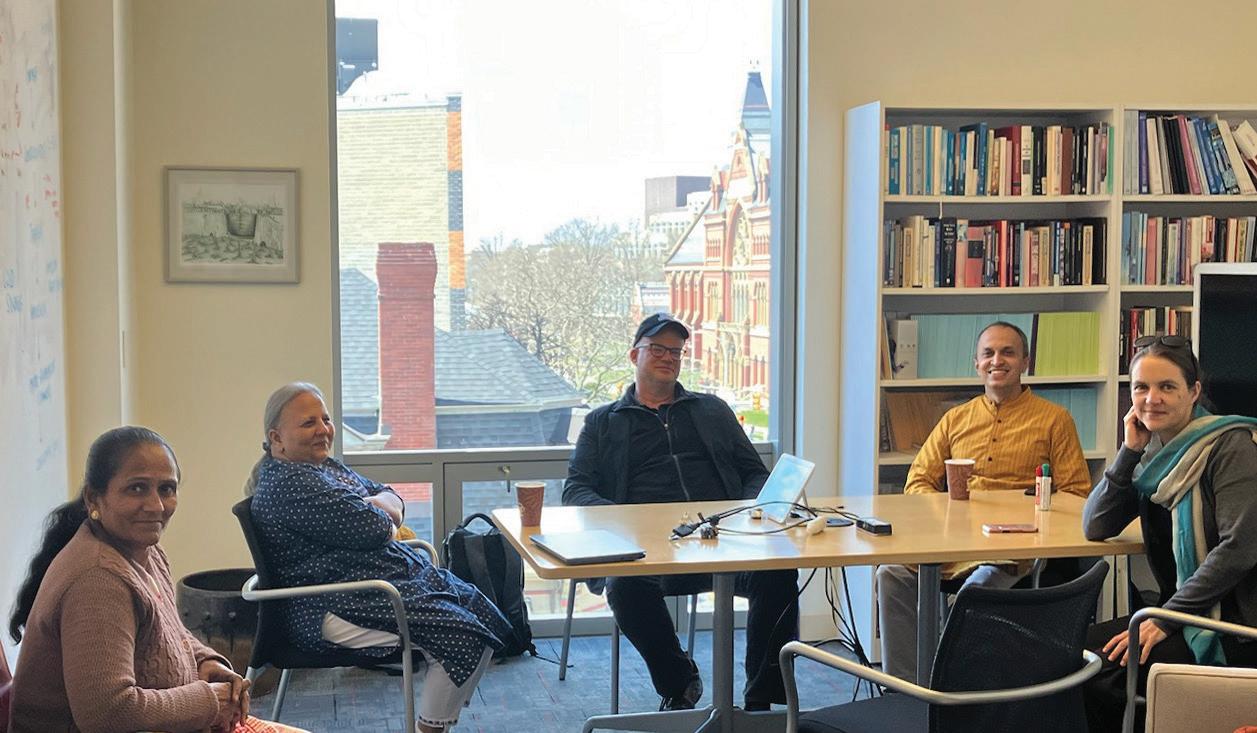
In 2022, Dr. Balsari’s team at Harvard was invited to study the impact of the pandemic on the members of SEWA and its response to the pandemic.
The research was based on a survey of over 1000 households and 30 hours of oral histories, and revealed how fifty years of organizing had allowed these disadvantaged but very empowered women to navigate the greatest public health emergency of our times, when dominant political, social and cultural structures failed to protect the most vulnerable, globally. They implemented solutions that were practical, expedient and mutually beneficial. The research illuminates what it takes to build and sustain resilient communities. The story of SEWA’s response to the pandemic is important because it elucidates alternative approaches to preparing the world for the intractable challenges that lie ahead.
In order to communicate our findings to a wide array of domestic and global audiences, an interdisciplinary team of students from medicine, public health, design, government and computer science, developed a multimedia exhibition combining artifacts from the lives of the workers, oral history videos, data visualizations from the research findings, and a stunning multi-screen display capturing the salience of digital devices in sustaining health, education and wages. This exhibit was first hosted at the Center for Government and International Studies at Harvard, and supported by the O ce of the Provost, and the Lakshmi Mittal and Family South Asia Institute at Harvard. It then began its tour, Jatra, or journey, with its next stop at the Clinton Global Initiative’s annual meeting in New York in September 2024.
At each stop, the exhibition is accompanied by panels and rount-tables inviting policy makers, artists and communities to explore the exhibit and, along with SEWA’s members, to retell, reinterpret and reimagine futures.


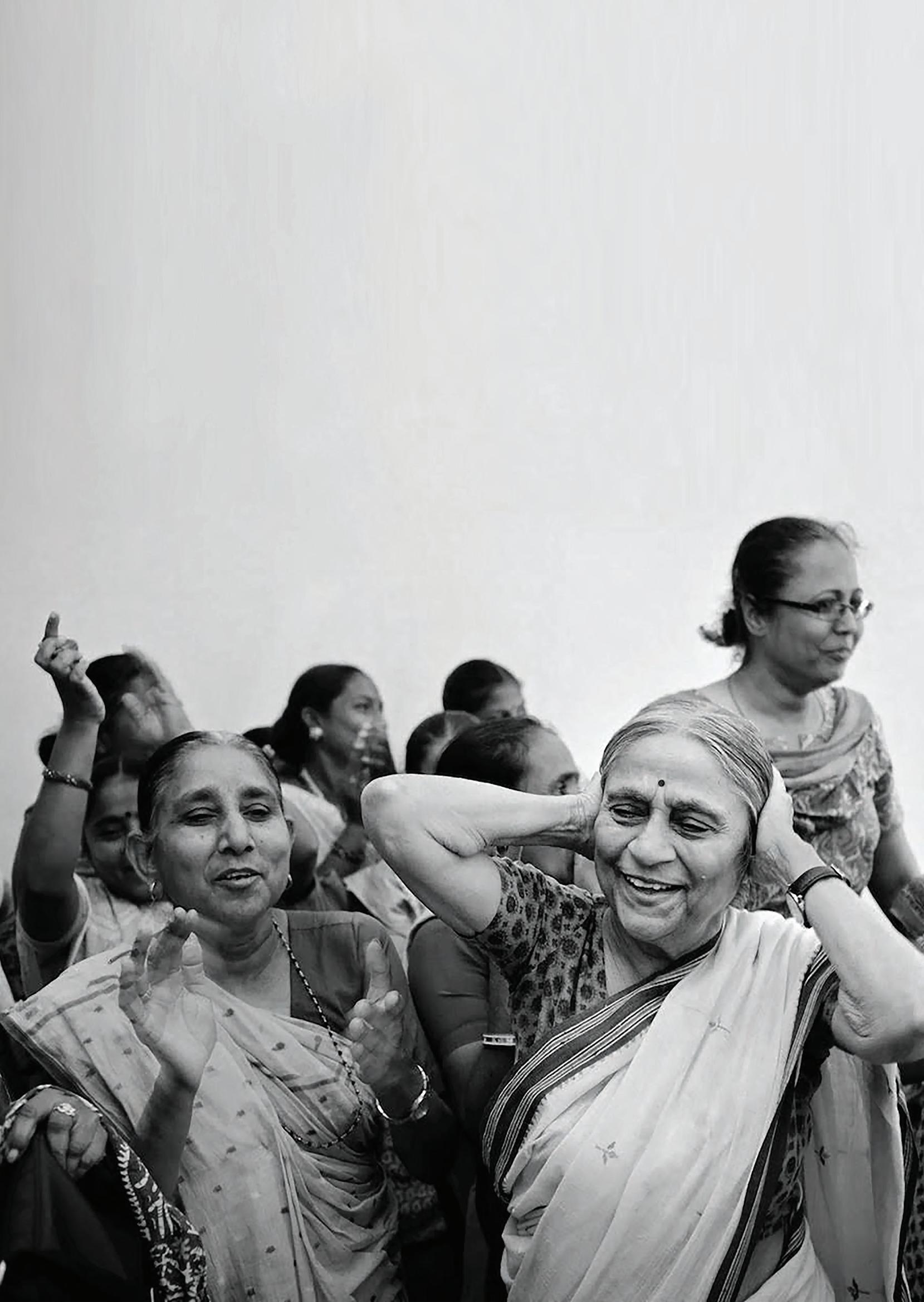
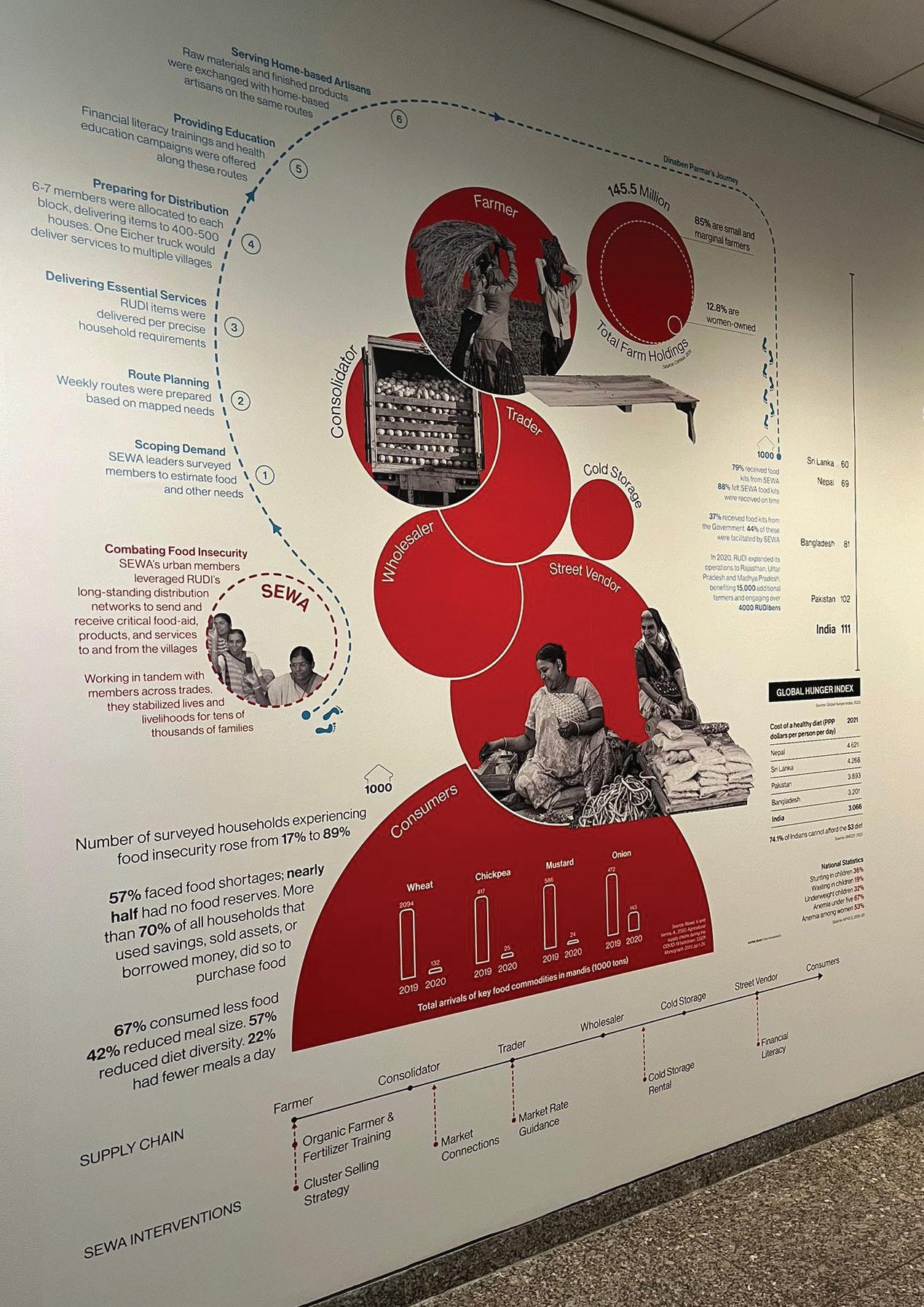
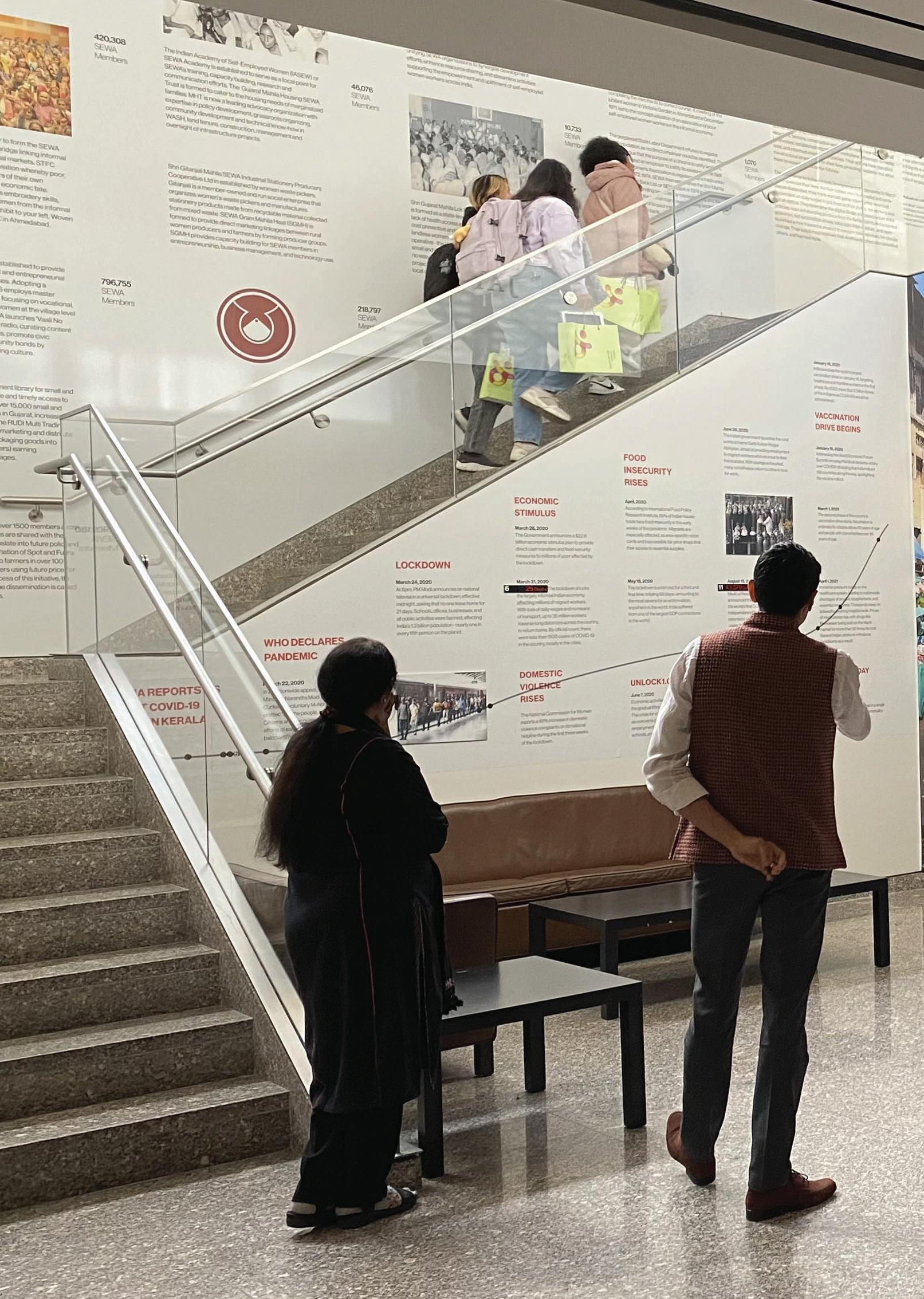
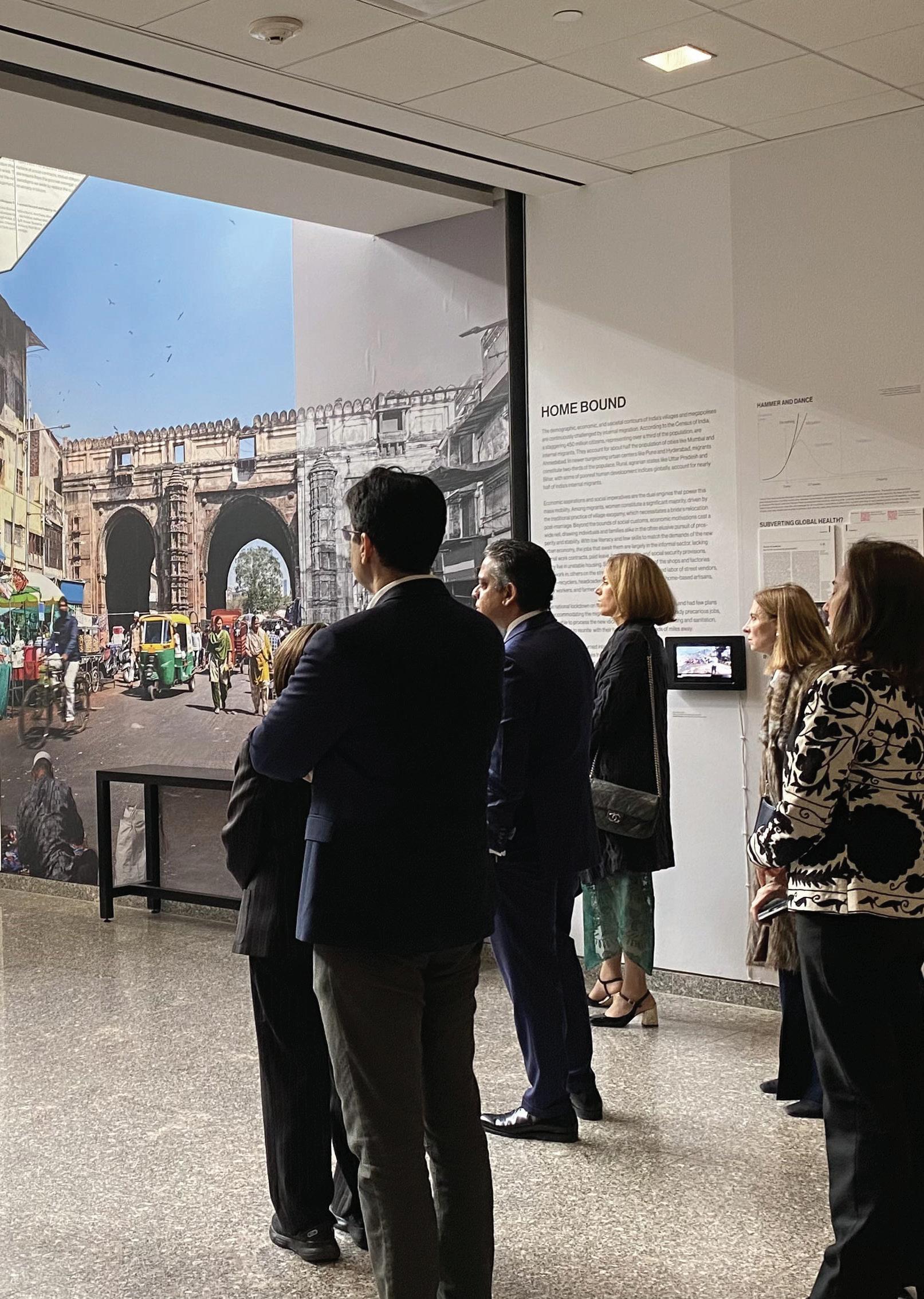
Exhibition Launch at Harvard’s Center for International and Government Studies
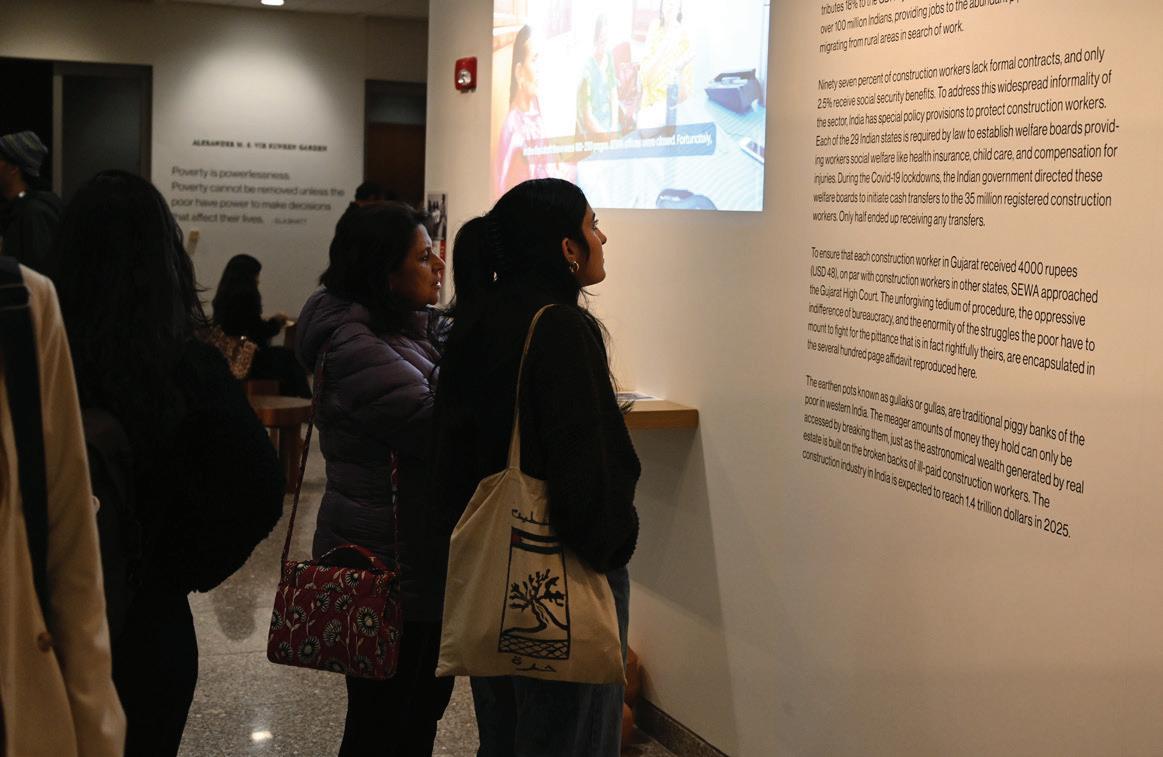
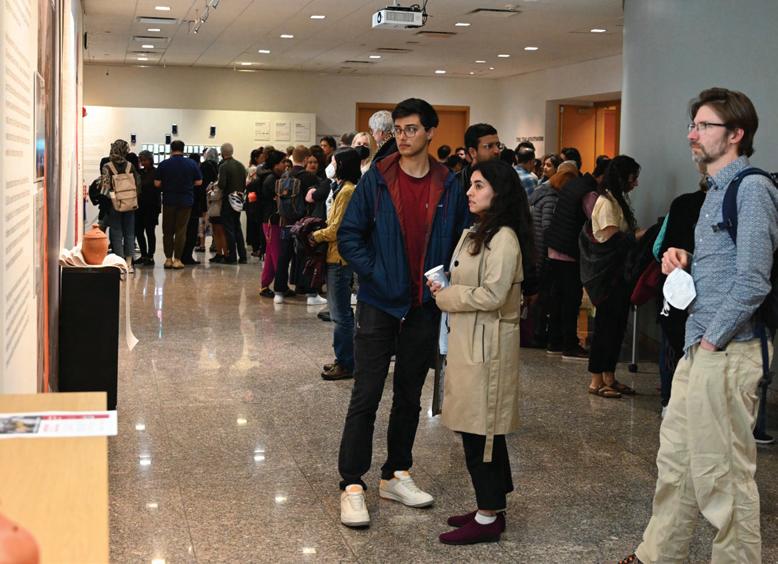

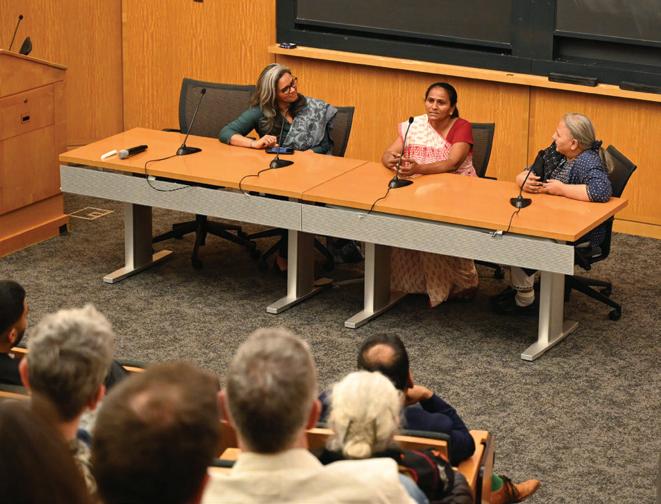
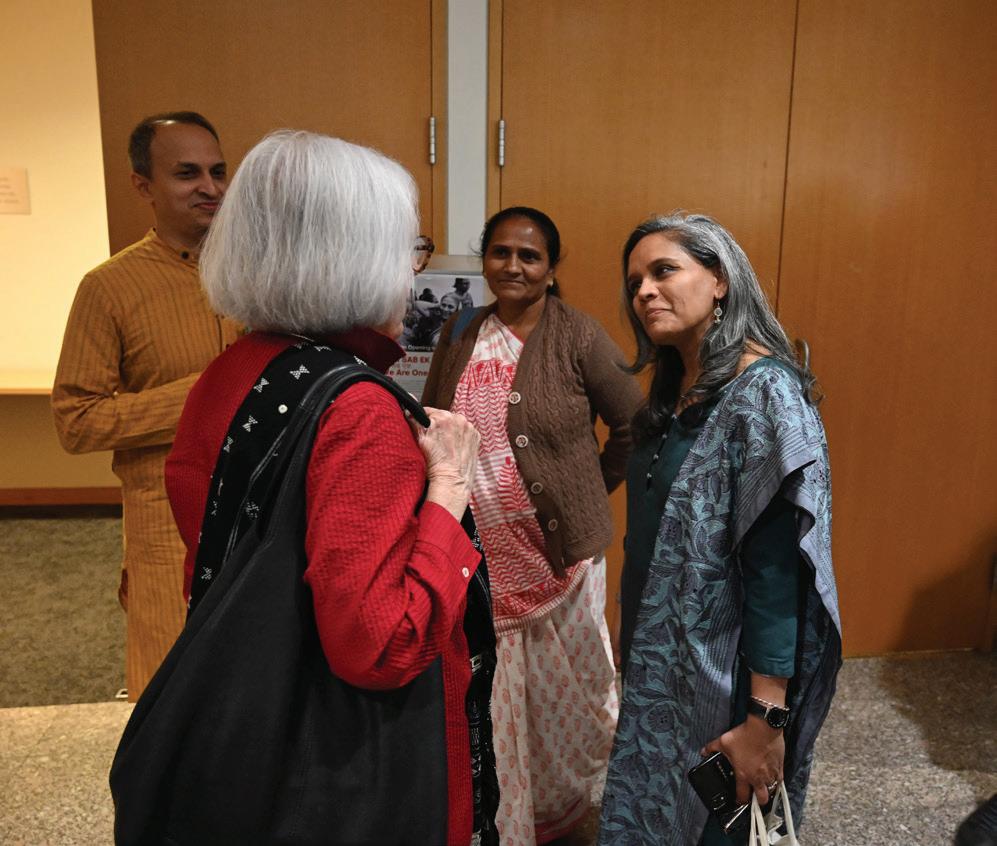

April 15, 2024
In conversation with Jyoti Macwan, Secretary-General SEWA, and the Student Exhibition Design Team

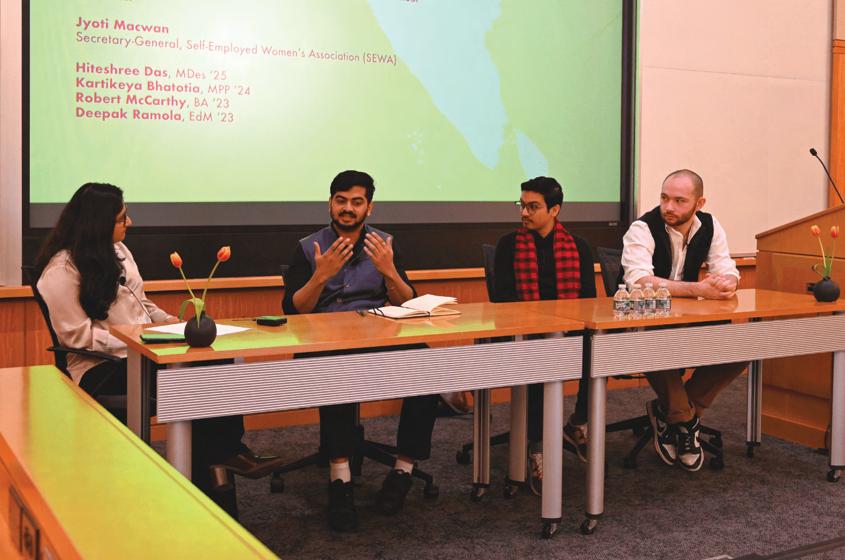
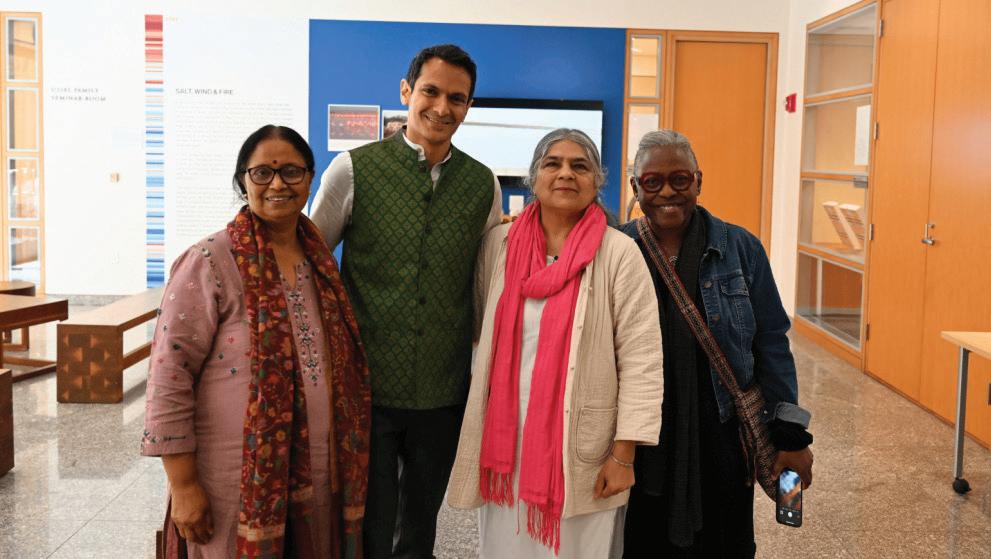
May 2, 2024
The Hum Sab Ek exhibition was prominently featured at the Clinton Global Initiative 2024 Annual Meeting in New York City. This marks the onset of the next phase, Jatra—a traveling exhibition that catalyzes a series of dialogues at the intersection of gender, work, health, climate change and resilience, first in the US and then globally.


September 23, 2024
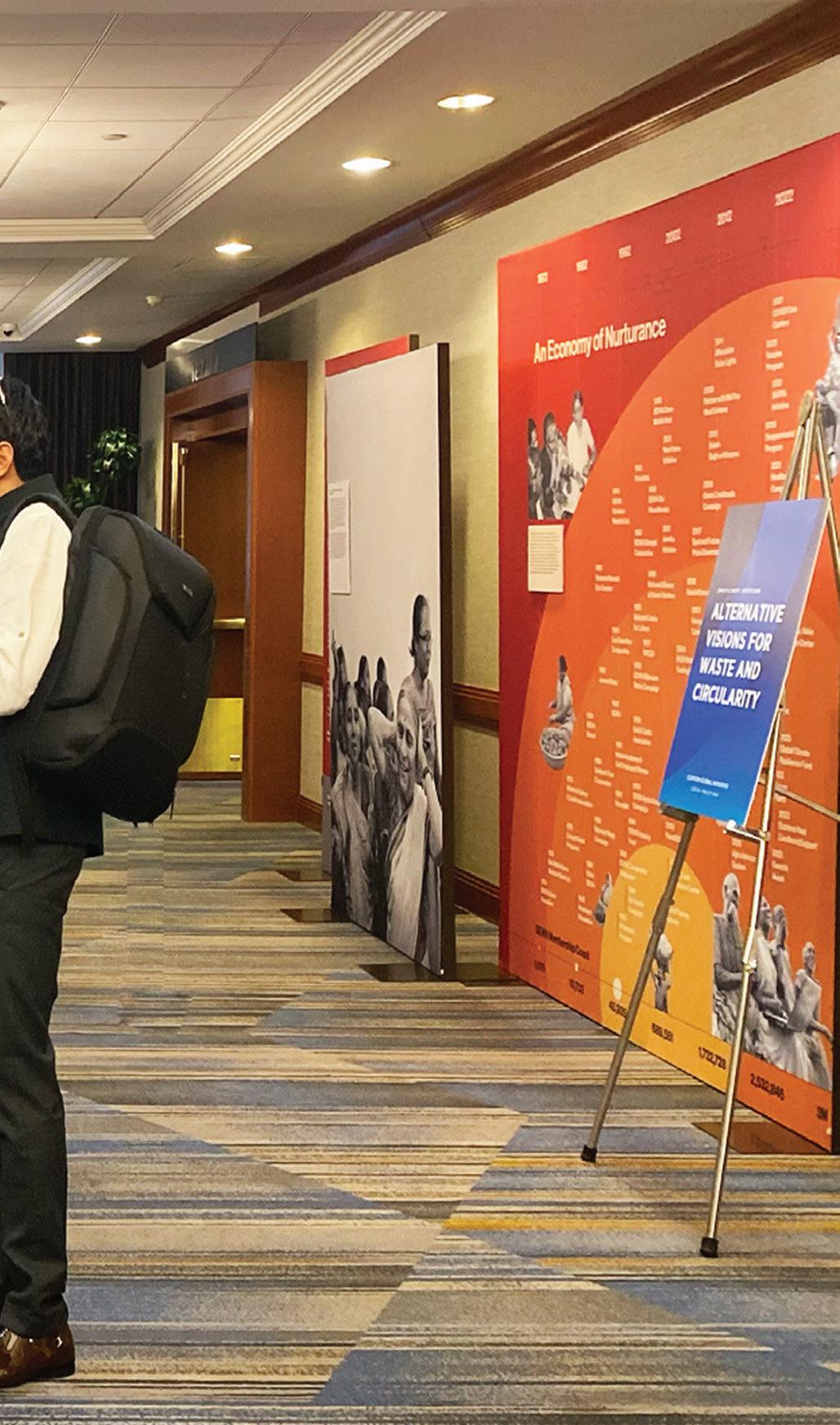
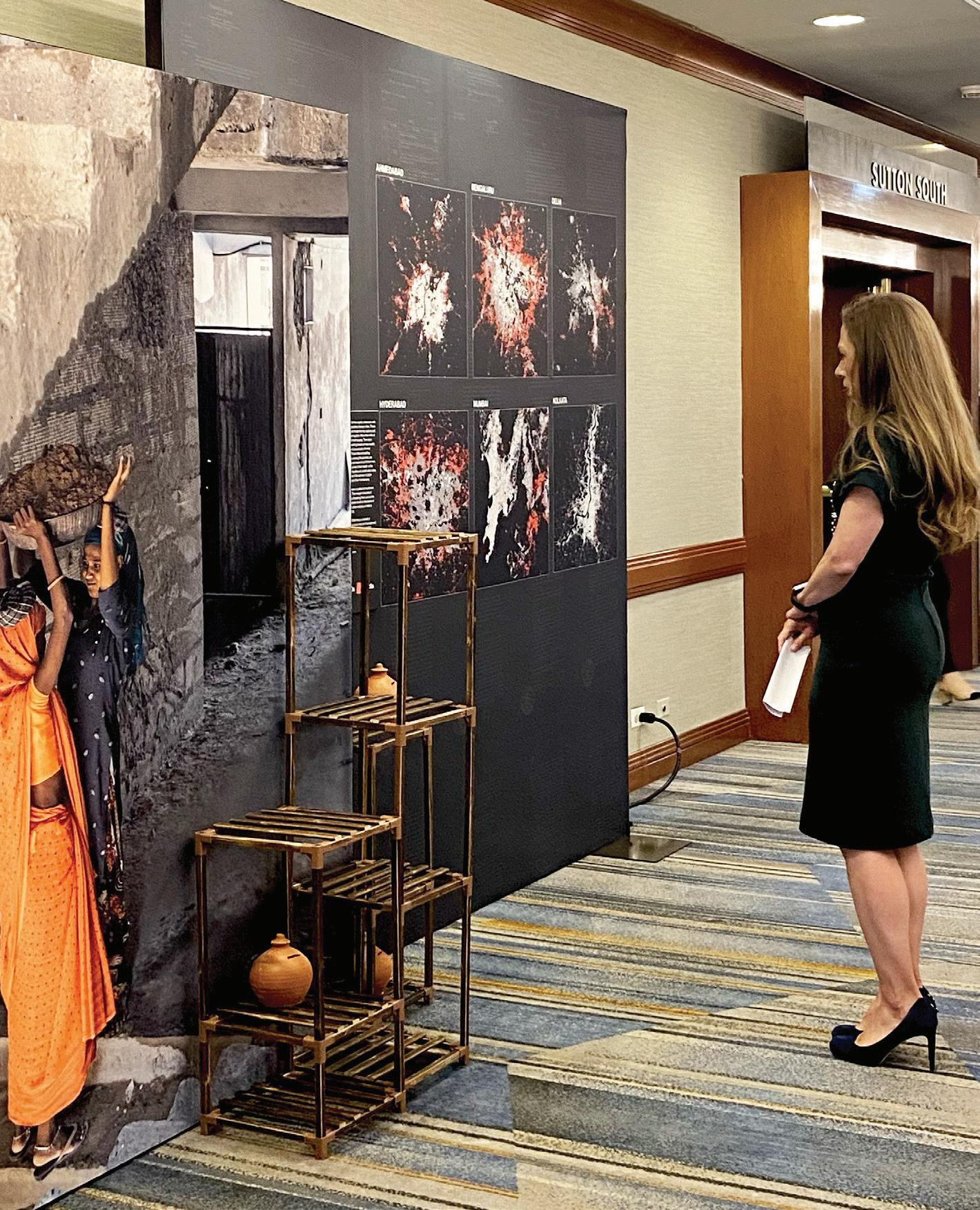
September 24, 2024
The traveling exhibition is designed using a lightweight modular system, featuring silicon edge graphic (SEG) frames and fabric panels.
Please note that the exhibit comprises 10 installations, each composed of one to four panels (in the five sizes listed below).
Maximum height: 8 feet
Total width: 116 - 150 feet
A – W4’ x H7.5’
B – W5’ x H7’
C – W4’ x H8’
D – W8’ x H8’
E – W6’ x H8’
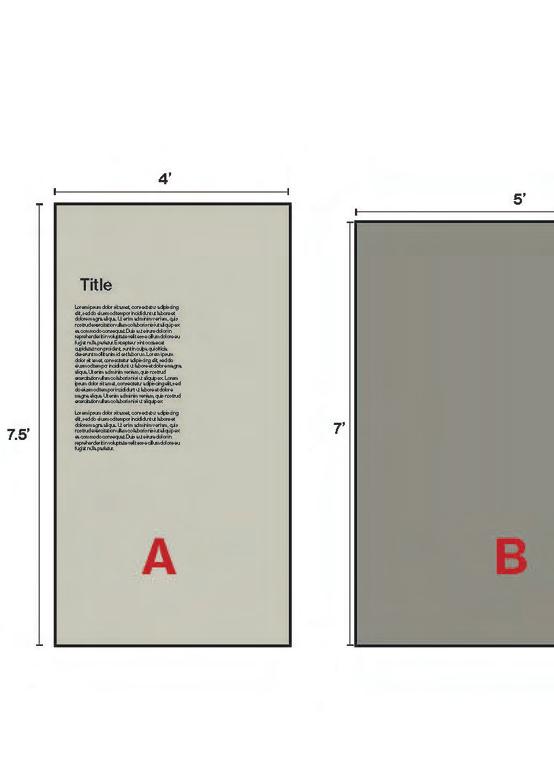
Illustrative example:
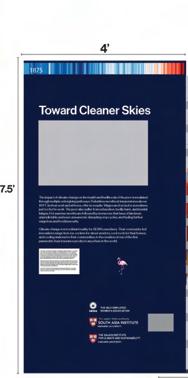
Installation 10

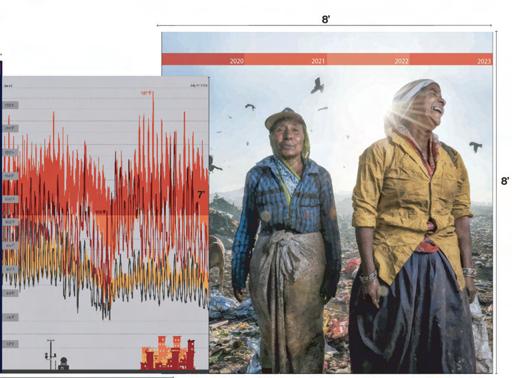
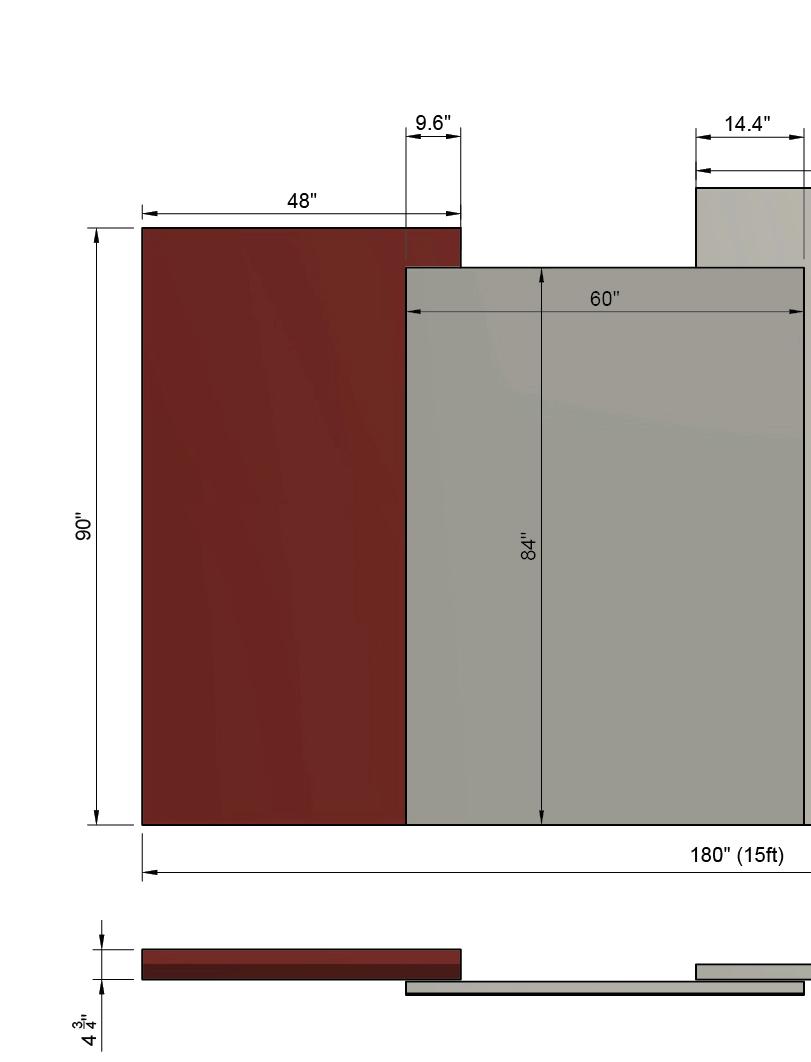


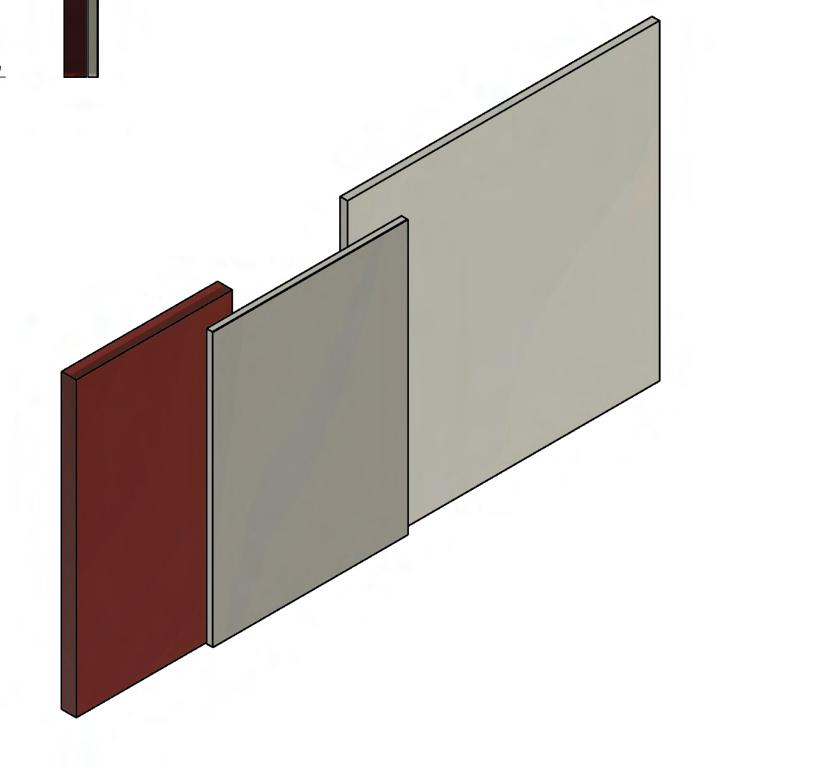
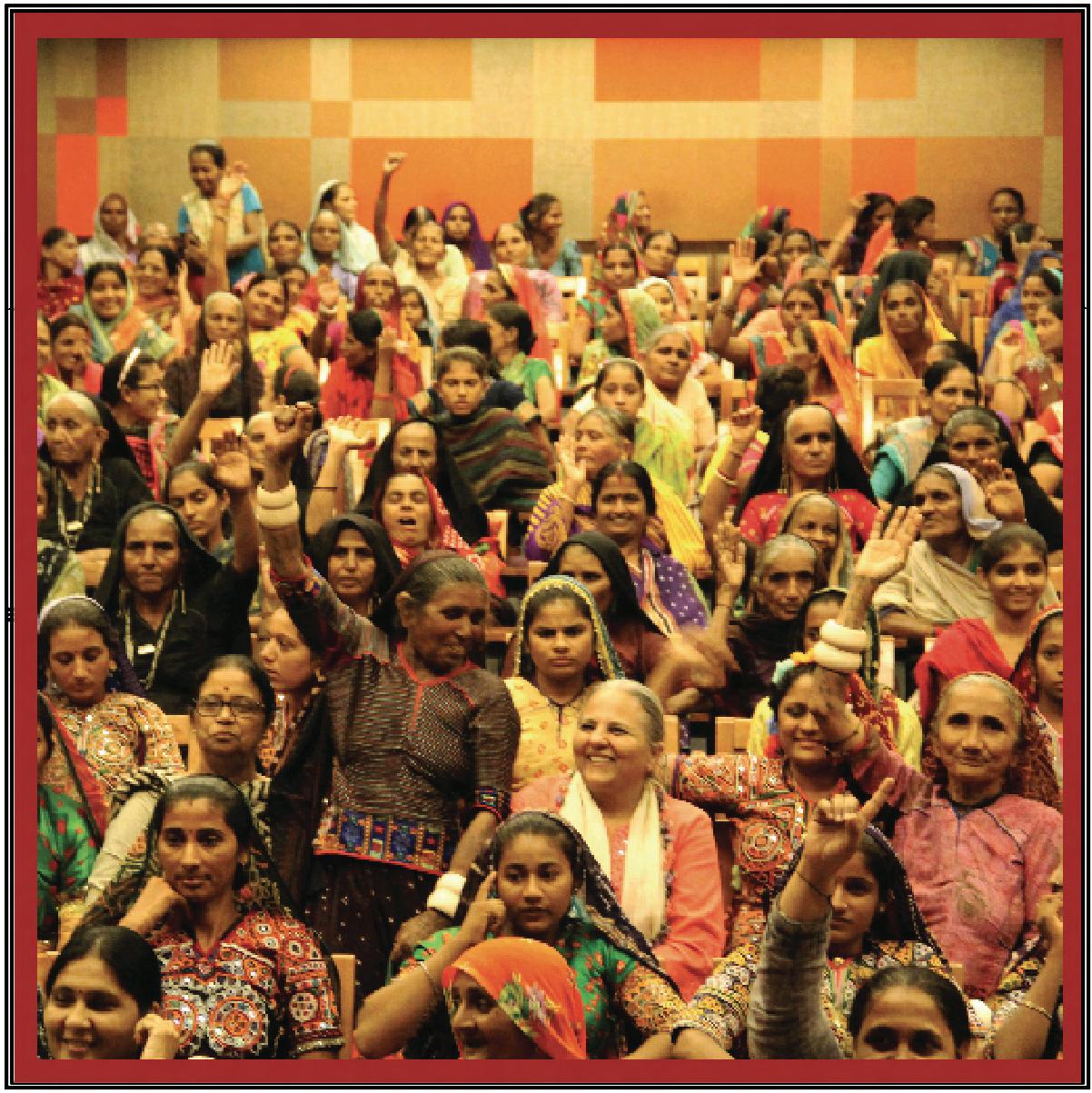

Additional Features: A floor mounted literature holder to display SEWA’s timeline booklets.

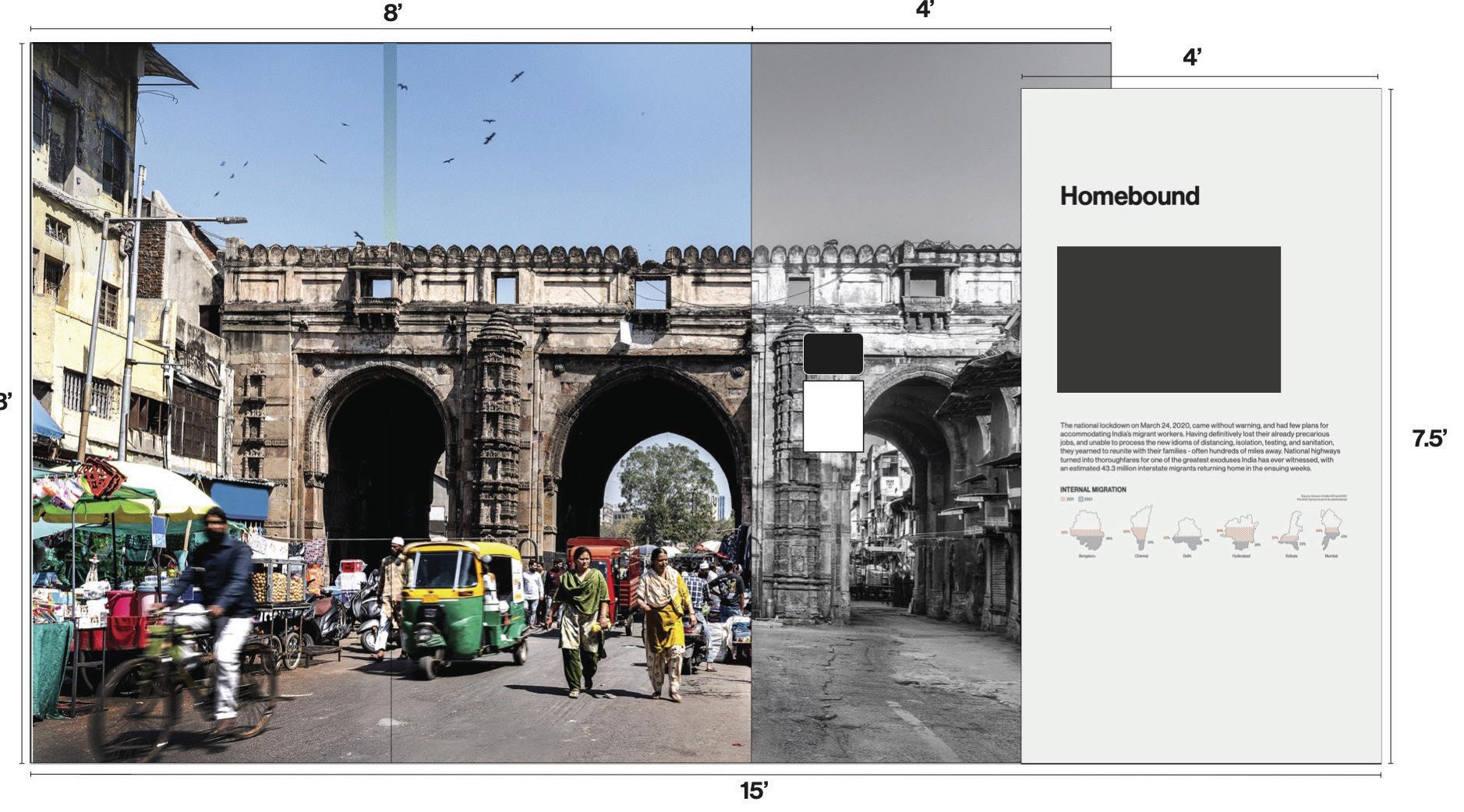
Additional Features:

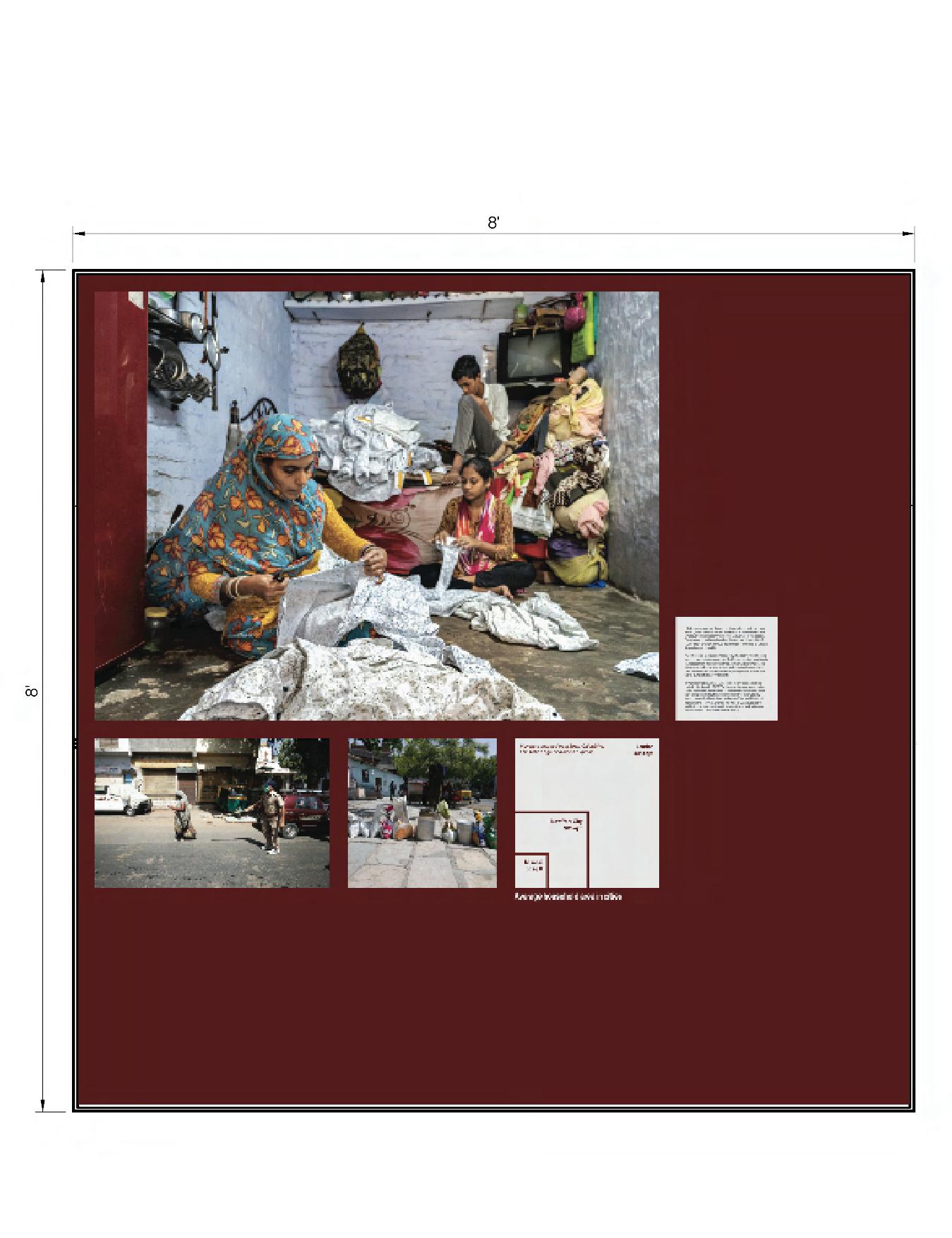

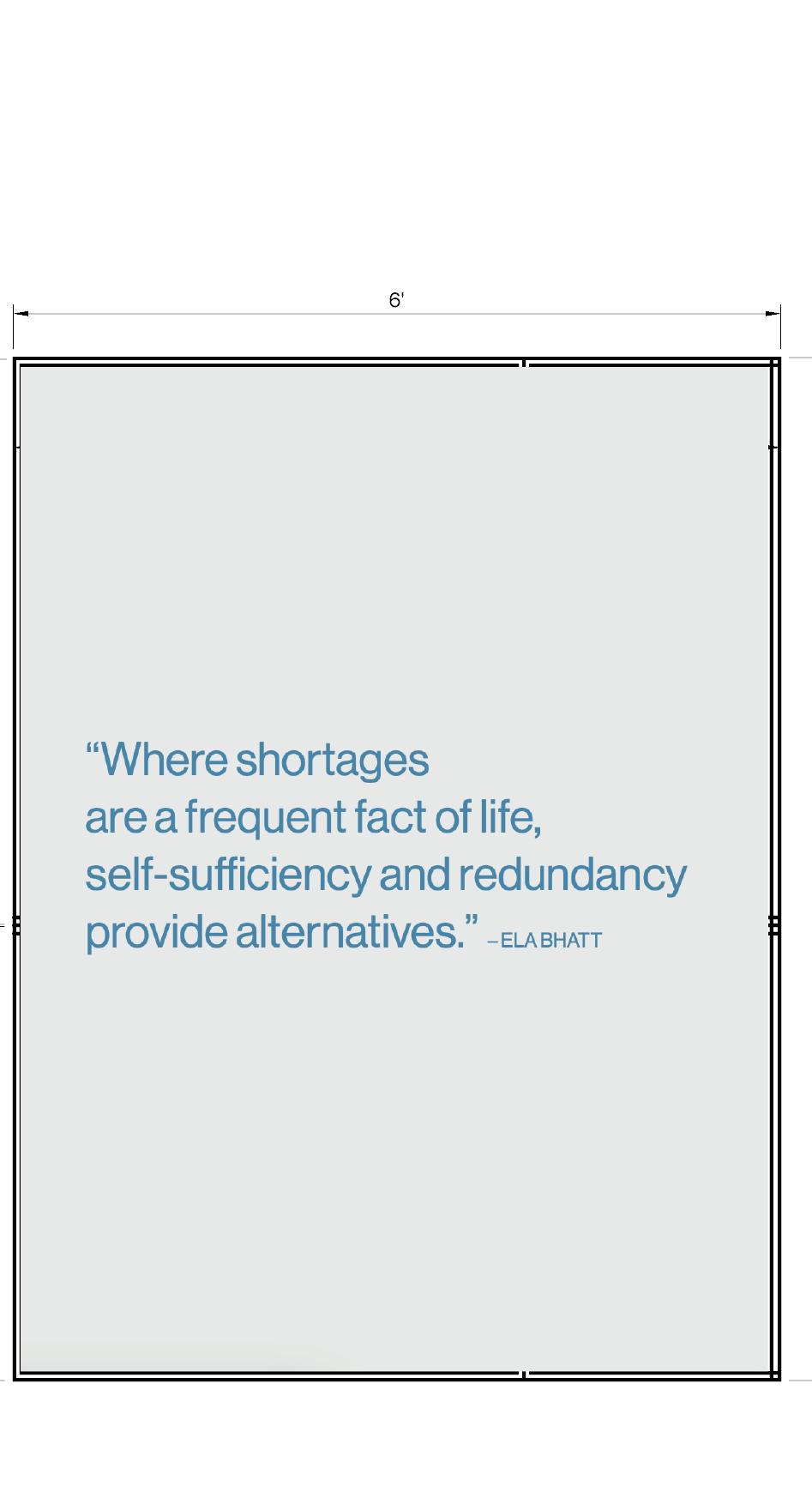
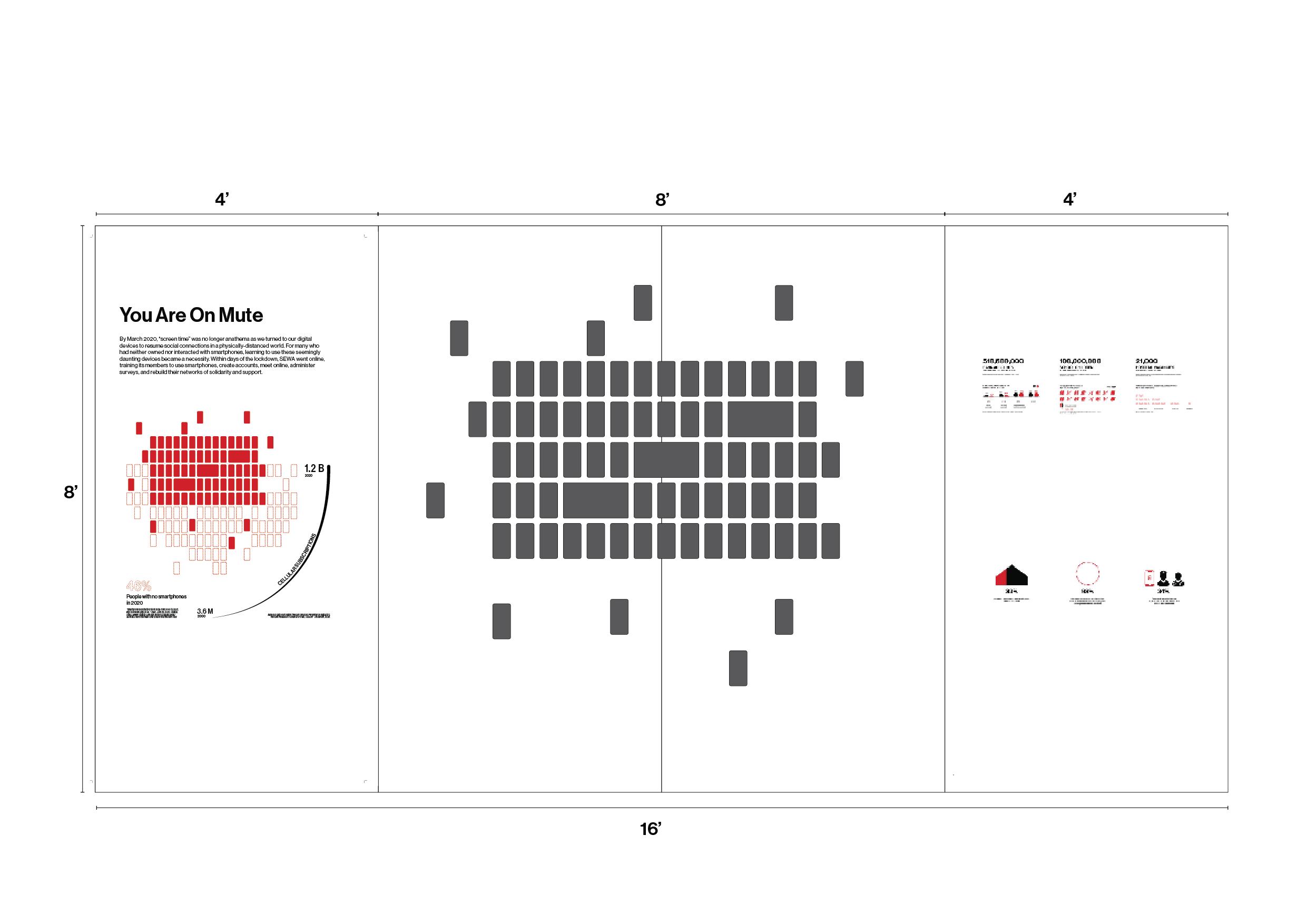
Additional Features:
74 Phones and 3 tablets and 3 additional tablets with headphones

Additional Features:
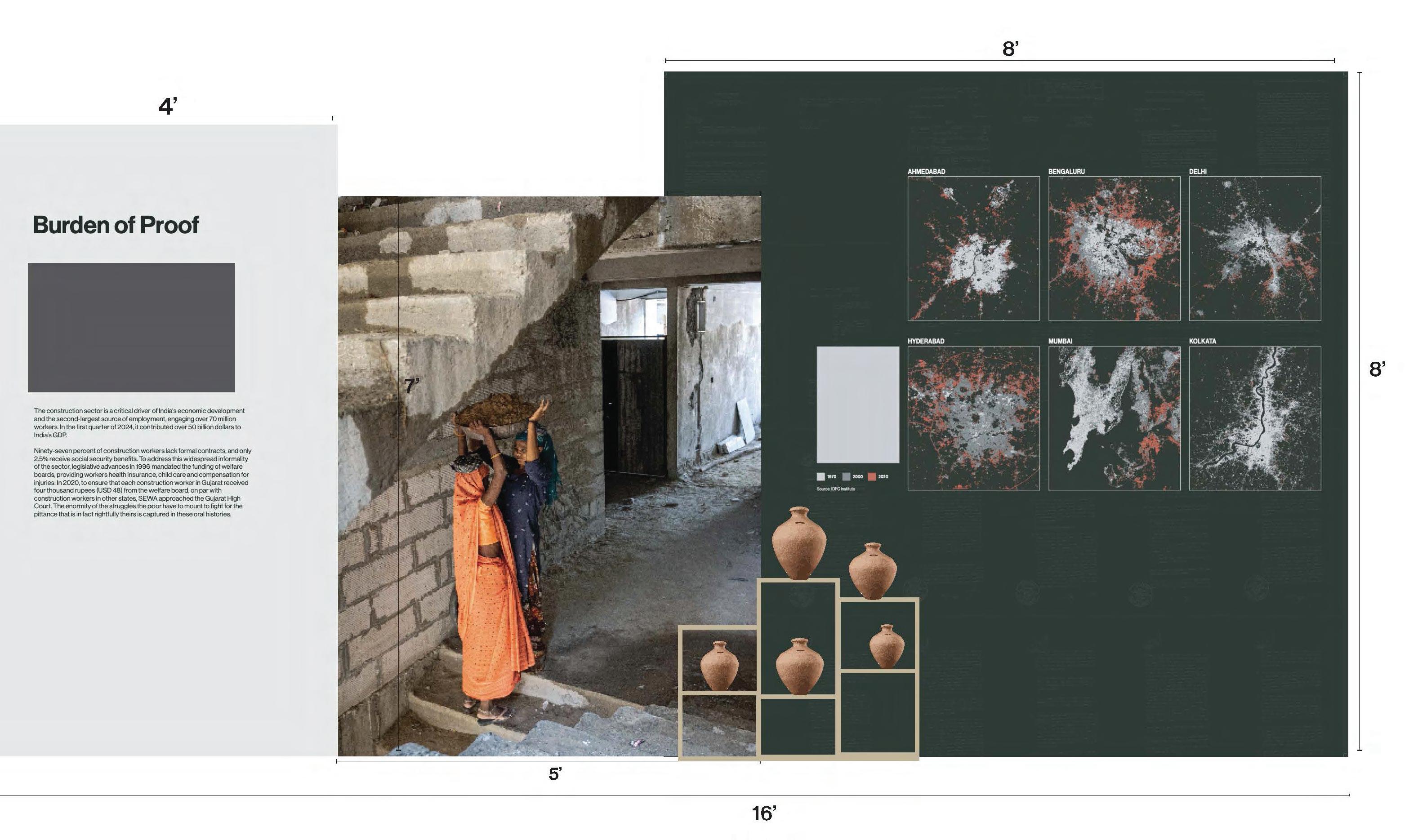
1 Television (28.1” x 16.8”), 5 Earthen pots and wooden shelves.

Additional Feature: 1 Television (28.1”
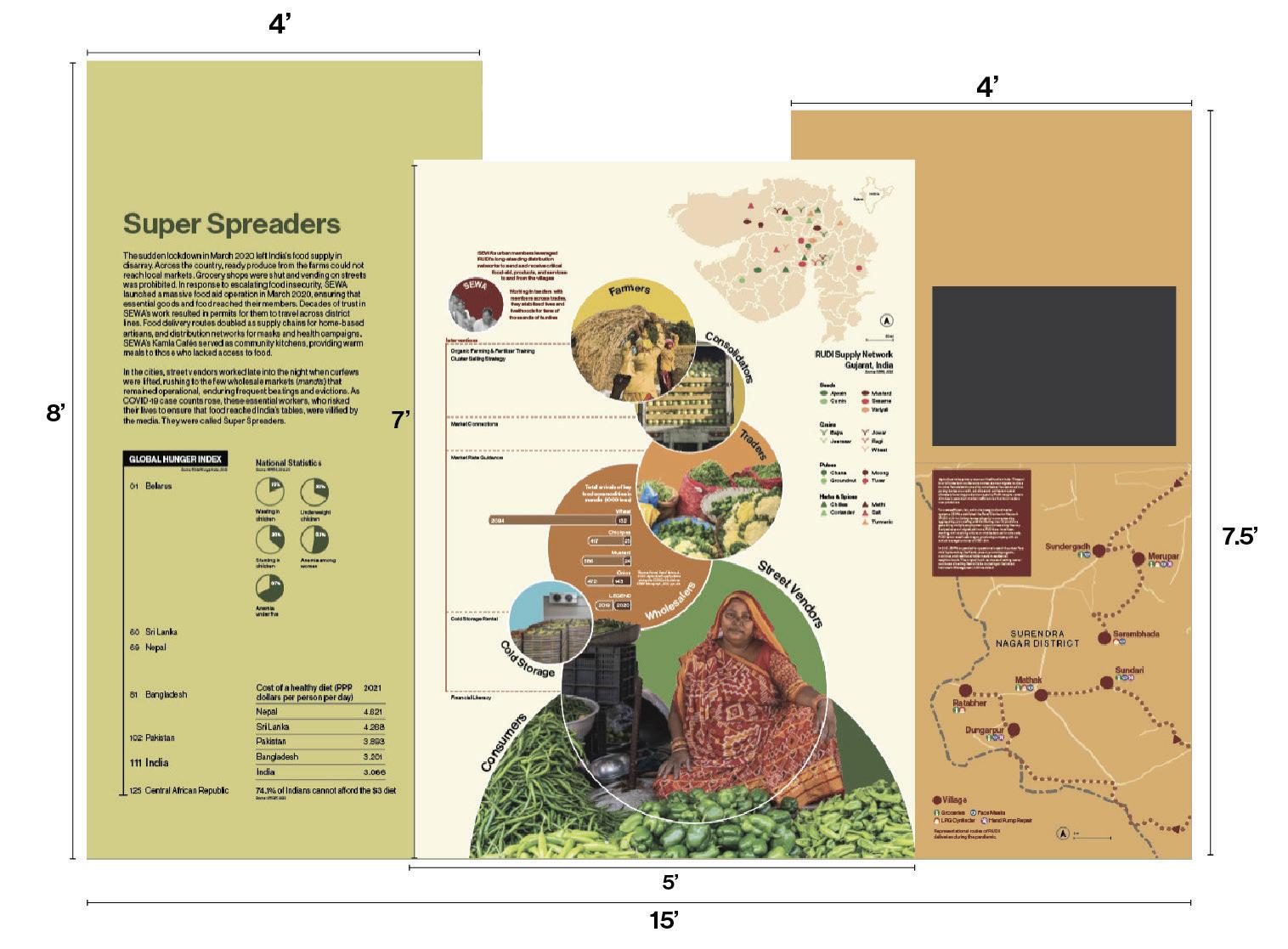

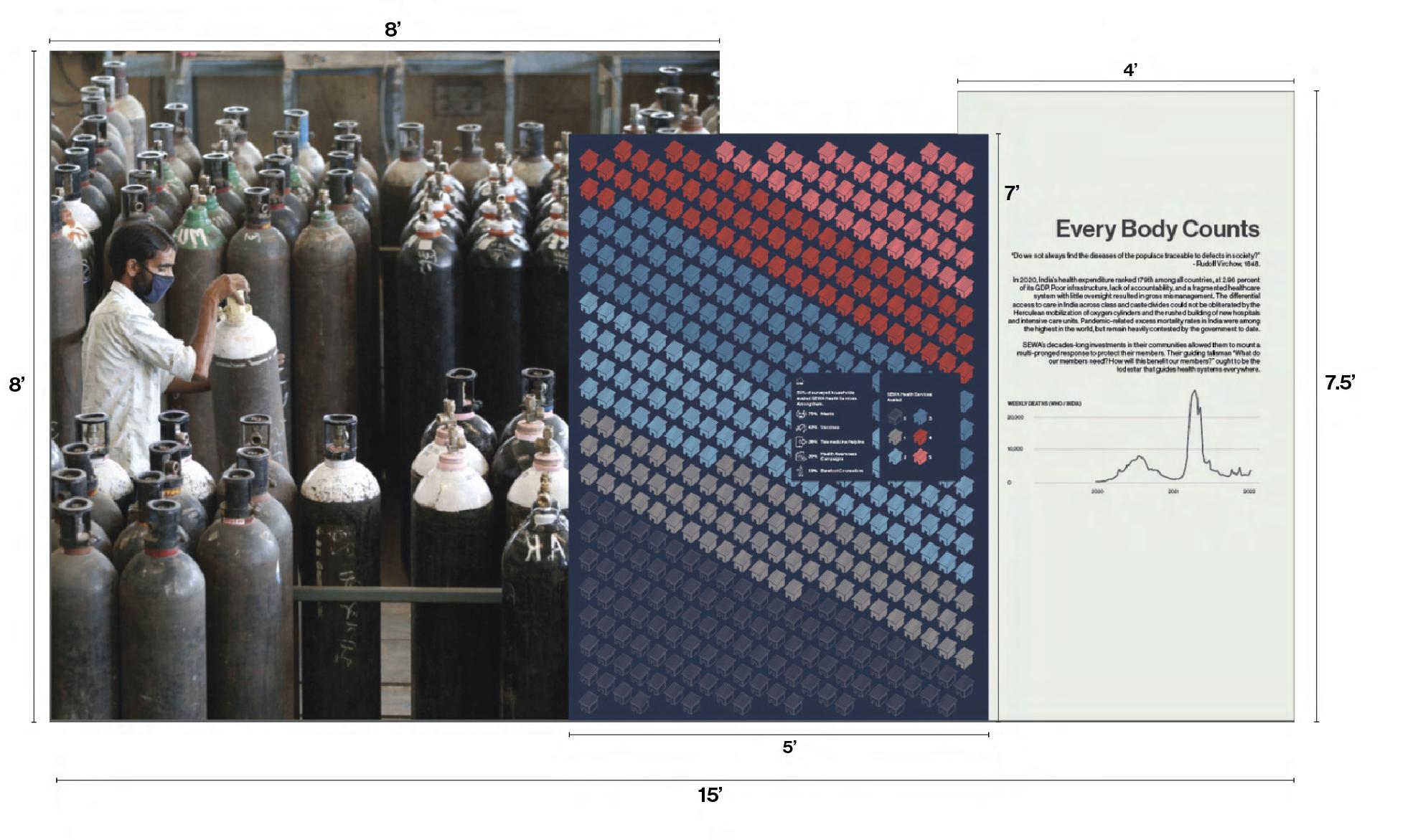

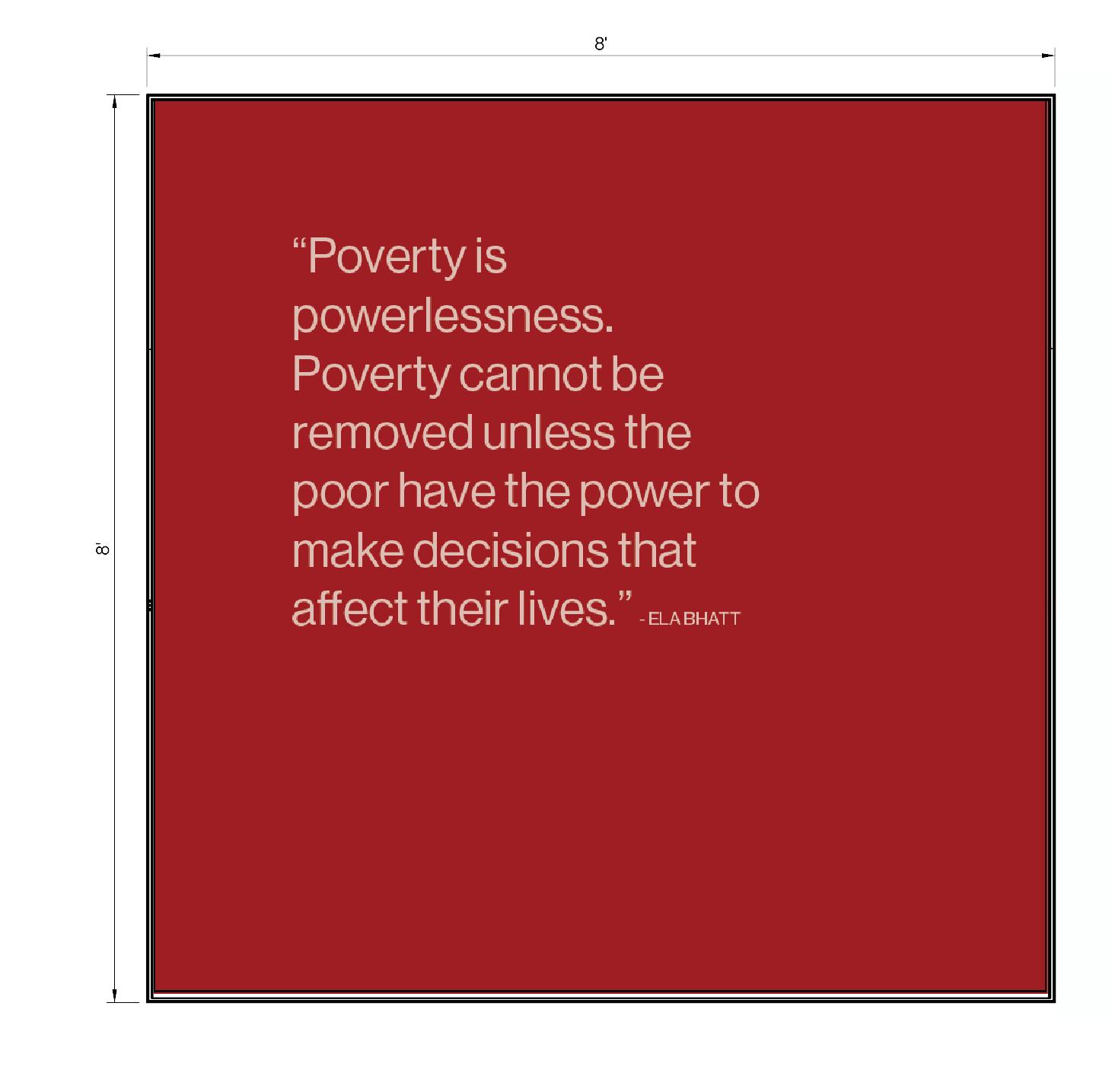

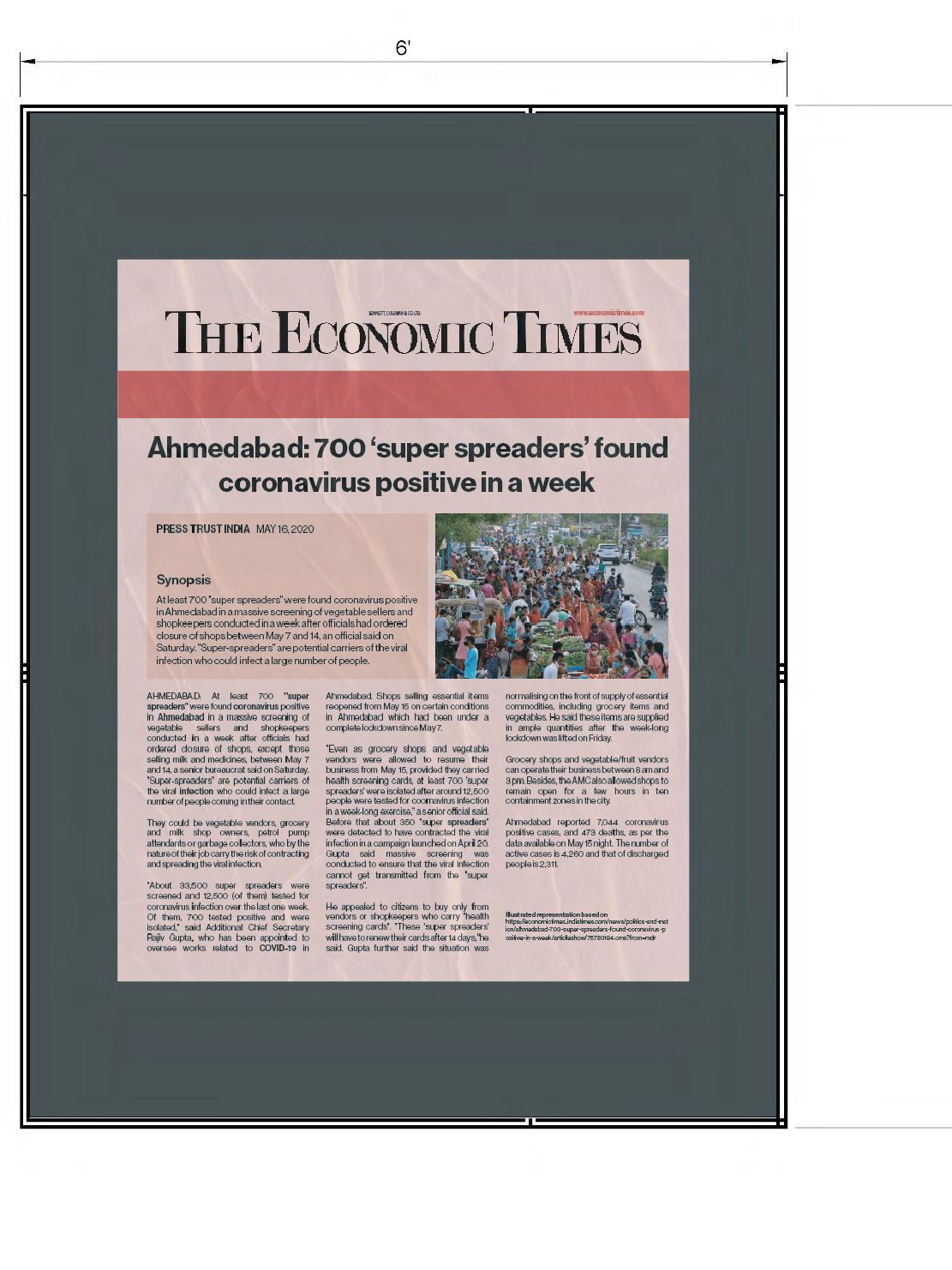
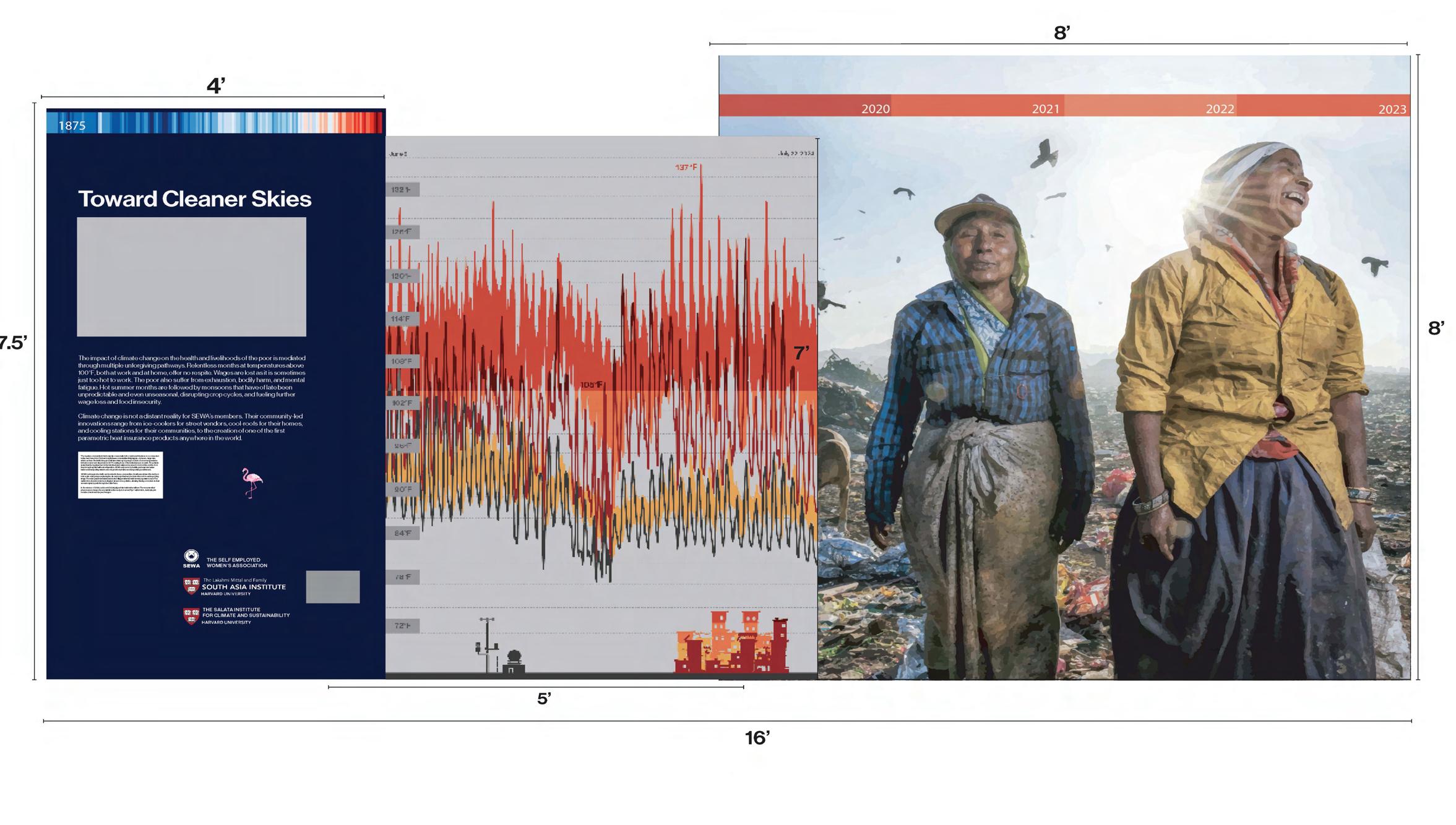
Additional Features:

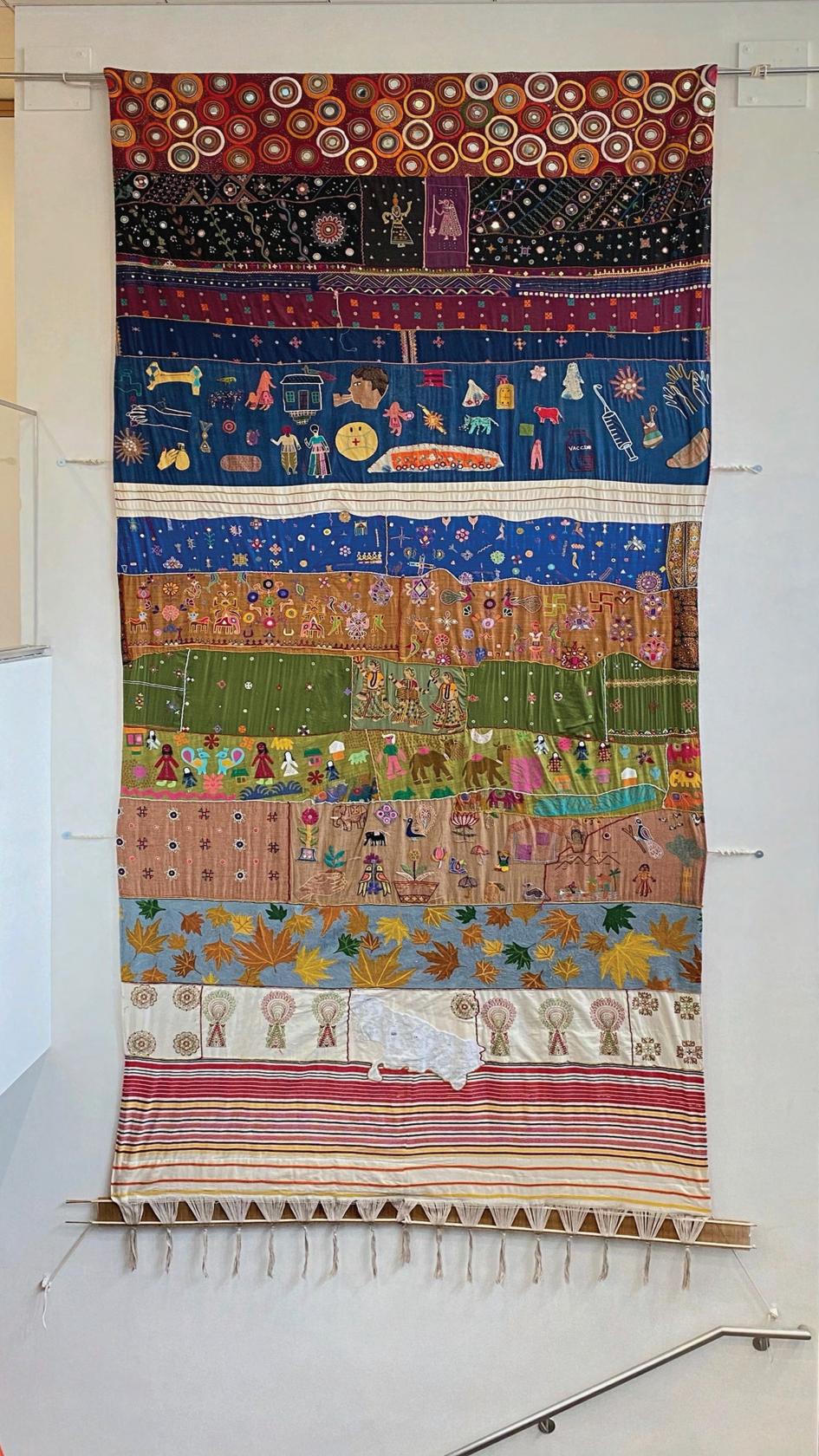
Additional Features: There are two sleeves for rods to suspend the tapestry—one at the top, as shown, and one at the bottom. Additionally, three thin ropes on each side help stretch the tapestry.
The tapestry is accompanied by two floor-mounted stands that display informational placards.

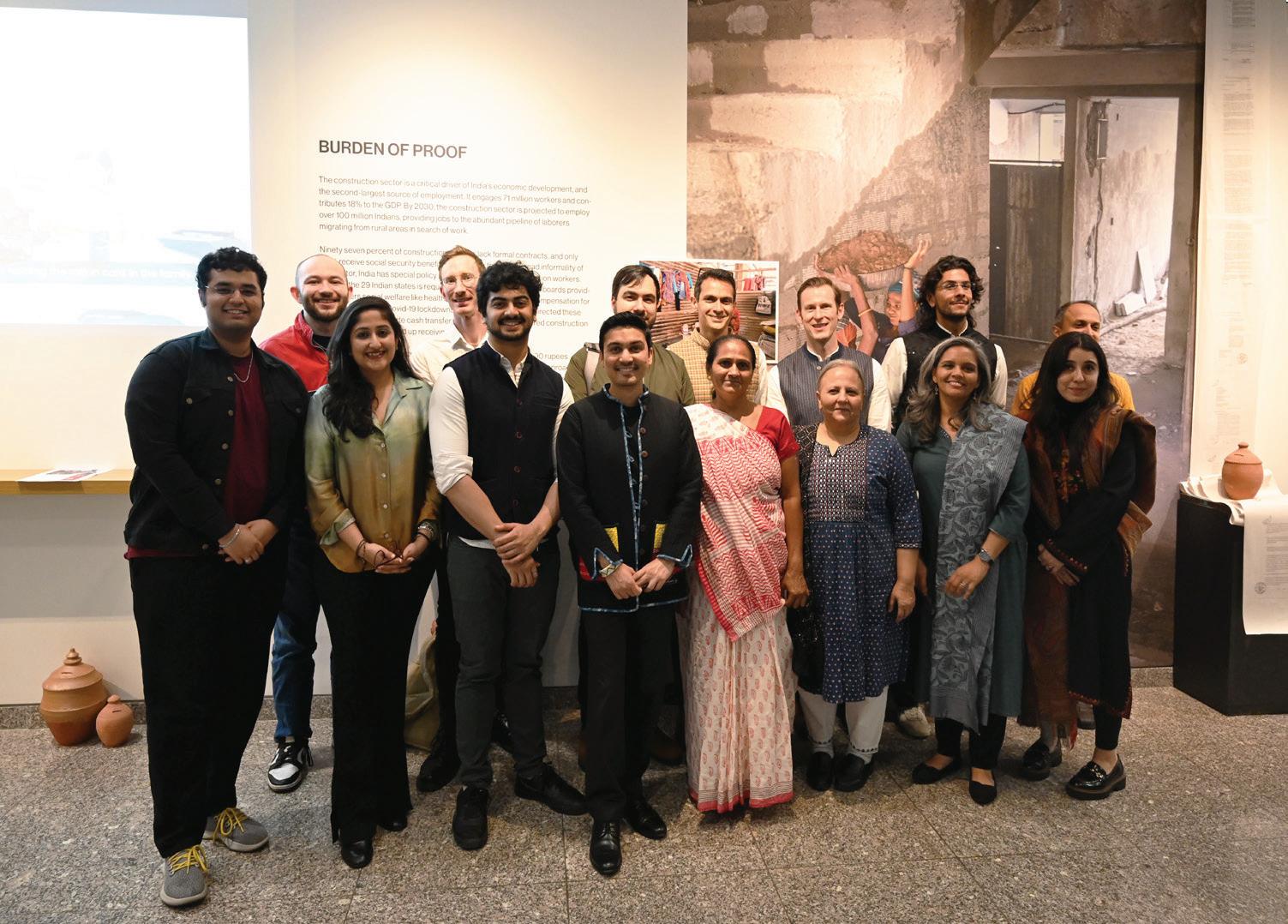
We thank o ur co llea gues from a round the world for the ir co unsel:
Mihi r Bh att, Ca roli ne Buc kee, Betti na Burc h, Ami t Dave, Ma rk Elli ot, Lori Gross, Je n ni fer Lea ni ng, Mi tul Ka ja ria, Dee pan ja na Klein, Al ly Matth a n, Nat ha n Me len b ri nk, Sab r in a Ly nn Motley, He at he r Mumford, Jo seph Nalle n, Emily R. Novak Gu st ai n is, Ravi Sad hu, Kathy Schoe r, Vis hwe sh Su rve, Ch ase Van Am bu rg, Michael Vortm ann, Rich Wol fe, and the teams at CGI S, Makep eace, CGI, GFI, Markham, Chemistry Creative, and the Mi ttal In st it ute in De lhi an d Ca m bri dge.
Satchi t Bal sari, MD, MP H
Associate Profes sor, Eme rgenc y Medici ne, Ha rvard Medi cal Schoo l
Beth Is rael De aconess Medi cal Ce nter
Hi tesh ree Das, MDes ‘25
Ha rvard Gradu ate School of Desig n
TECHNOLOGY LEAD
Rob ert Mc Ca rthy, BA ‘23 (H arvard Colle ge)
DESIGN TEAM
Wi lli am B oles, MLA ‘26 (GSD )
Karthi k Gi rish, MUP ‘25 (GSD )
Se lmon Rafey, Mi ttal Institu te
De epak Ramol a, EdM ‘23 (HGSE )
Sh ari q M. Shah, MDes ‘24 (GSD )
Bettina Wyler, Mittal In stit ute
RESEARCH TEAM
Abhishe k Bh ati a, MS ‘ 17 (HSPH )
Kartikeya Bh atoti a, MPP ‘24 (H KS)
Dan Borelli, Di rec tor of Exhibitions , Ha rvard Gradu ate School of Desi gn
Lori Gross, Ass oci ate Provost for Arts an d Cul ture, Ha rvard Universit y
Tarun Kha nna, Jo rge Paulo Lem ann Profes sor, Ha rvard Busi ness Schoo l
Rahul Mehrotra, Joh n T. Dunlop Profes sor in Ho usi ng and Urbani zatio n, Ha rvard Gradu ate School of Desi gn
Ca leb Shreve, Executi ve Di rec tor, Glo bal Fai rness Initi ative
Doris Somme r, Ira J ewell Willi ams Profes sor of Roma nce Lan guages an d Literatures , Ha rvard Facul ty of Arts an d Scienc es
WOMEN’S ASSOCIATION
S UPPORTED BY:



Project Webpage: https://mittalsouthasiainstitute.harvard.edu/hum-sab-ek-exhibition/